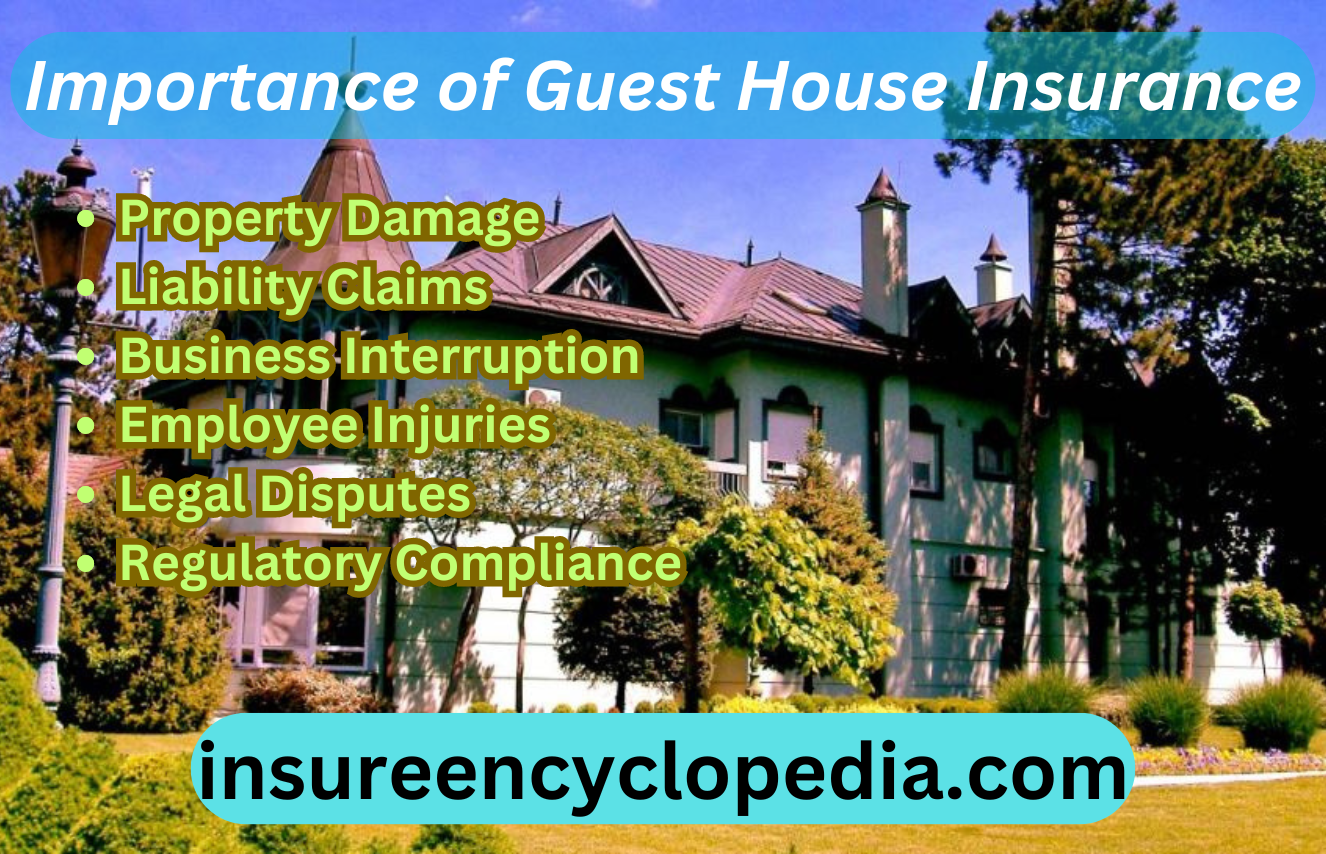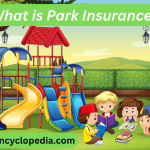What is Guest House Insurance?
Guest House Insurance may be defined as one of the special kinds of insurance policies that allow owners and managers of guest houses to protect their financial interests. Some of the business risks it covers include the physical damage to the property on which the guest house business operates, damage claims against the business, and disruptions of operations.
Importance of Guest House Insurance:

- Property Damage: Guest houses are capped with risks like fire outbreak, storm, vandalism, and any other acts of doom. Guest House Insurance can cater for the expenses of reparations or reconstruction to enable the business to get back into operation.
- Liability Claims: Claims from guests and employees that have sustained an injury, or properties that have been damaged by other guests or employees are likely to cost the business dearly through litigation. Liability insurance offers cushioning to the guest house owner in case he or she is sued heavily.
- Business Interruption: The disasters, legal problems and incidents that can occur to a guest house can be a reason for closing it and in this case such establishments lose money. Business interruption insurance aids to provide for fixed cost such as rent, utility bills, salaries amongst others when the business is not operational.
- Employee Injuries: Injuries or sickness may happen while performing the work. The guest house owner has to ensure that he or she is under employers’ liability insurance for they can end up suing the owner of the guest house for injuries or illnesses while working.
- Legal Disputes: Owners of guest house are subjected to legal issues with guests and suppliers or contractor.
- Peace of Mind: The fact that you feel that your business is protected by Guest House Insurance can help you as a business owner to avoid stressing constantly about losing all of your wealth that you invested in the guest house.
- Regulatory Compliance: In countries and regions where there is law that governs business operations, owners of the guest house are obliged to obtain insurance of some certain types.
The owners of guest house should seek to avoid falling into these traps by seeking the services of an insurance company to provide for guest house insurance to cover for any risks that may be encountered while managing the business as they can always be held responsible for lost cash even if it was embezzled by the employees or involved in a bad investment hence endangering their personal assets. In fact, it may be the soundest decision that one can make for it gives one a sense of security.
Types of Guest House Insurance:
General insurance in the form of Guest House Insurance takes the responsibility of providing cover for the financial prospects of the managers or the owners of the guest houses. It extends to all classes of risks associated with the conduct of a guest house business for instance risks of property damage, negligence or liabilities, business disruption risks and so on.
1. Property Insurance
- Building Coverage: This stands for paying for any structural loss in the physical structure of the guest house in the event of a fire, storm, vandalism or any other loss which the policy has classified under this cover. For instance, the guest house may be burnt; in this regard, this coverage will assist in paying expenses incurred on undertaking repairs or reconstruction of the house.
- Contents Coverage: This is important in protecting the property of the residents and the property in the guest house contents such as furniture’s, appliances, linen among others. This would help if the guest’s belonging is either stolen or lost this coverage would help to compensate for the same.
- Loss of Income Coverage: This balances the cut in business in case the guest house cannot operate out of the losses that have been incurred.
- Liability Insurance
Liability insurance helps the guest house owner to avoid being sued in case of an accident or an injury which may happen in the guest house or in connection with the business of the guest house.
- General Liability Coverage: This includes those that arise from operations of the guest house that may include injuries or damages to properties at the compound such as slip cases or damages to the customers’ properties. For instance, if the guest slips and falls on the lobby then this coverage will cover the medical expenses and other legal cost.
Claim Process and Tips for Guest House Insurance:
- Contact Your Insurance Agent: But it is better to let them know about it whether it is good or bad as earlier as possible. A report should contain such general information concerning an event as the date of the event, details of time and whether or not the event was formal.
- Gather Information: Regarding the pleadings in particular, make sure and obtain whatever evidence if any such as; photograph(s), police statement, witness statement(s), record from a health facility and others.
- File a Claim Form: S tore any document that is in any form connected with the claim that the insurance company requires to be filled when making the Insurance claim. Remember that you should only provide facts that are hard and fast which will work to assist your case.
Documentation Requirements for Guest House Insurance:
- Proof of Loss: This may comprise; bills, receipt or quotations for repair or replacement of any part of the property.
- Police Report: If the theft, vandalism or any other criminal activities have thus occurred then, this might require police report services.
- Medical Records: Where there is anything eve, that happened, the complainant has to produce medical forms and bills.
- Photographs: Self-creamed photos of the affected property are very useful this can help your insurance company to be in a better position to evaluate the level of loss that was incurred.
Claim Settlement for Guest House Insurance:
- Amount of Documentation: That is the reason, the more documents one can give quicker the claim maybe cleared, but most of the time it takes several hours to have insurance claim cleared.
- Insurance Company Policies: All of them have characteristics that make them differ in that they have standard-less procedures and the time taken before the claim is attended to.
- Negotiations: It may also be where the assured is required to sit down with the insurance company so as to come to a common decision.


